 As a young boy, my favorite thing about attending the annual Proctor & Gamble company picnic was getting to hang out with older kids, because everyone knows older kids are cooler. One year, some bad-ass 11-year olds told me about a horror movie called THE CHILDREN, where a school bus full of children are exposed to nuclear fog and turned into zombies, and you can tell because they have blue fingernails. I listened to the play-by-play of this gruesome story where kids kill adults and parents defend themselves by chopping off the children’s hands. That night I couldn’t sleep because I was too freaked out by the film’s final scene. Just hearing about it scared the hell out of me. I desperately wanted to see THE CHILDREN, but was too terrified. Years later I watched the film and it proved to be just as disturbing as I’d imagined. And I loved it.
As a young boy, my favorite thing about attending the annual Proctor & Gamble company picnic was getting to hang out with older kids, because everyone knows older kids are cooler. One year, some bad-ass 11-year olds told me about a horror movie called THE CHILDREN, where a school bus full of children are exposed to nuclear fog and turned into zombies, and you can tell because they have blue fingernails. I listened to the play-by-play of this gruesome story where kids kill adults and parents defend themselves by chopping off the children’s hands. That night I couldn’t sleep because I was too freaked out by the film’s final scene. Just hearing about it scared the hell out of me. I desperately wanted to see THE CHILDREN, but was too terrified. Years later I watched the film and it proved to be just as disturbing as I’d imagined. And I loved it. Recently, I had lunch with the film’s director, Max Kalmanowicz. Over lunch Max talked about what makes child actors so creepy, the secret to making low-budget horror, the cause of our current “zombie renaissance” and the surprising link between his drive-in movie and the horrors of World War II. Plus he shared some details about his upcoming film HORROR CON.
MAX: If you have a child and they look beautiful and cute, it’s hard to get any scary value out of that. So you have to do something with that wonderful face and turn it from angelic into devilish or malevolent. And that’s a trick which you certainly can’t accomplish by having them do really grotesque, weird things because it looks funny with a kid, so you actually have a very narrow range of things you can do. We went for the ghoulish, zombie-like, light make-up. Kids are so easily amused or easily scared themselves, but in The Children, these kids’ expressions don’t change. They’re not laughing or gloating or anything, they just want to do their monsterly business of frying their parents. And kids are not usually all-business like that.
KEVIN: And just the outreached hands. Seeing kids doing stuff in unison is a little creepy.
MAX: I had been working in the film business as a sound mixer and a cameraman for years, and I wanted to direct a film. I was getting very tired of working in the technical end, so I started looking around for somebody who had a low budget film to do that I would direct, and try to convince them that I could do it, and I was a pretty dynamic guy at the time, I had lots of ideas, and a friend of mine was actually a friend of Carlton Albright’s , and he had written the script and he didn’t have the first idea how to get it off the ground. He was going to have a friend of his direct it, who not only had no more experience than I did, he actually wasn’t even in the film business, he was an actor. So what happened was, when this mutual friend introduced us, calling back the idea that I had some, let’s call it pizzazz or something going on, and I would inject his film with some life and make it scary and wonderful, and we clicked and we proceeded from there to raise the money and cast the picture and pick a location and do all the things that were necessary. We had a pretty good plan – of course in low budget filmmaking things go – we had a really good plan for special effects, we were going to have more prosthetics and make-up on the kids, more of a gruesome death scene for the adults, but then at the last minute the special effects guy, either he got sick or didn’t want to do it or whatever, so we had to scramble real quick and we got a fellow who was willing to take the job – and he did an incredible job, but the depth of preparation we did wasn’t visible on the screen. The guy who was going to do the special effects and make-up and who was going to do the original prosthetics – the hands would’ve had metal inserts into them that would’ve allowed an animation type of sequence where the hands would open and close as they returned from the zombie hands to the dead hands of real kids, they would’ve been moving, but we couldn’t get it. And I thought that would’ve been over the top, scary. Because the kid’s hand with the black fingernails, it’s an ugly thing turning into a beautiful little clean hand, but we couldn’t get the transition.
 |
| actor Martin Shakar |
KEVIN: One of the things Carlton Albright mentions on the DVD commentary is how Martin Shakar interpreted the character kind of against the grain, he took a really sympathetic character, sort of turned him into an anti-hero, how do you feel about that choice – did you support it, did you think he could have played it another way?
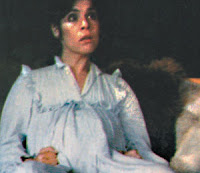 |
| Gale Garnett |
KEVIN: Another one of my favorite moments is Gale Garnett lighting the cigarette while she’s pregnant –
 MAX: When you have humor you’re not pumping adrenaline. But if in the middle of laughing you get a shot of adrenaline, it’s a mixture of two pretty contrasting emotions, and it’s a lot to deal with.
MAX: When you have humor you’re not pumping adrenaline. But if in the middle of laughing you get a shot of adrenaline, it’s a mixture of two pretty contrasting emotions, and it’s a lot to deal with.KEVIN: Are there any other things in the content of the film or the distribution that you wished you could have done differently or you would do differently now?
MAX: I wanted to have a more graduated effect of horror with the kids, I would have liked to see them transformed more, I would have liked to see them in death return from more of a monstrous place to a more angelic place, and that would have required prosthetics on the faces and it would have required animatronics on the hands, and we weren’t able, we originally had plans to do exactly that. In fact, we had hired a doctor who was a prostheticist, he made prosthetics, and he did a custom-made prosthetic for the kids in the movie, and he was going to be with us on location a few days a week to make the next prosthetic for the next shot that was going to happen. But something happened with the doctor and his new wife, an argument, or something happened – we got up one morning and they were gone. I mean, gone! And he didn’t leave the hands behind either.
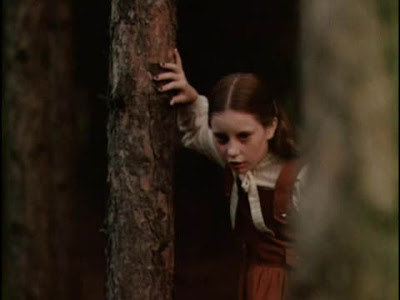
So we had to run and find, I think what happened was we got the make-up lady, who originally said she could do this, and we said, I’m sure you can, but we’re going to get a doctor. So she became the new prostheticist, and quickly cast, and did an incredible job, of casting the kids’ hands, making them up, making them look like they were really their hands, and we were able to shoot at least the dissolve back to the hands being normal, but we had great plans for the kids’ faces and their hands, and they didn’t work because the prostheticist, who was a real serious guy, who was doing us a favor and we were loving it, he just split, and what were we going to do? Sue him? Can’t sue him.
KEVIN: The poisonous fog that shows up and turns the angelic children into the – before I get to this question, what word would you use to describe them? They turn into ghouls, they turn into zombies, what would you say?
MAX: Ummm… ghoul-zombies. Ghoulish zombies.
KEVIN: So before the children are turned into ghoulish zombies they’re exposed to this gas, this fog from the power plant. Was that directly inspired by anything from Three Mile Island?
MAX: No, no, it was inspired by something that happened in Massachusetts. The Yankee #1 nuclear power plant had recently, in fact that was one of my contributions to the film, that you had asked before what changes I had made, we had made it that the whole opening sequence about the gas and the cloud was something of my invention, because I felt that we needed if not a plausible then at least a passably plausible reason for what happens to the kids, and there wasn’t one in the original script.
KEVIN: The Troma DVD has a little bit of a murky transfer, any plans for a cleaned-up edition of The Children?
MAX: Only if Troma intends on either re-releasing it, or we do The Children 2, where the children come back, in which case it would be worth it. But to clean it up, would probably, well, the film was shot in 35mm Panavision. The quality is there. The quality of the transfer is the part that’s lacking. So probably you’d have to go back to the print negative printing master. And I don’t know if it still exists. So, the answer is, I don’t know. I certainly don’t believe that they’re going to invest in it, unless there’s a The Children 2 and then..
KEVIN: Let’s talk about The Children 2. This can’t be the first time The Children 2 has come up. What would The Children 2 entail?
MAX: Well, you know, I don’t want to talk about it because I don’t want to jinx it. There’s no plans for one, and Carlton Albright has expressed no interest whatsoever. If there’s a revived interest or increasing sales of The Children, maybe the people from Troma may have bought the rights out, I don’t know the details. Maybe they’ll want to get on board and try to do it.
MAX: I think it was The Screaming Skull – there was this shot of a skull coming up out of a bubbling, murky, steaming pond. And it’d just go nuts – smoke came out of its eyes and the mouth of the skull. All it did was come up out of the water, look around, and submerge again, it just, you know I basically screamed whenever I saw it. Then there was one about a cannibal who they kill and his hands come back.
KEVIN: This was with Peter Lorre?
MAX: It might have been, no no, this was a knock-off of that. I’ve seen that one. This one was scarier, believe me. These hands really choked people, I mean they got graphic in this one, and eyes were bulging, and the thought of a disembodied hand, like walking upstairs and creeping under the bed or walking under the covers towards your throat, and then AAAAAGGGHHH—
MAX: [Pause] Yup. I mean, I can’t say no, it’s in the same vein. But um, what really had to happen as far as I was concerned was that there had to be an intro to the movie, and there had to be a way to kill them. And I don’t remember… I’m not certain – it might be that the hands cutting off was the original remedy. There had to be a remedy that would have been not something that would have reasonably been tried earlier on, and would have happened by accident, and only then would we realize that there is a way to stop them, because they seem pretty unstoppable.
MAX: As I mentioned, most of the children in it, the two main kids were Carlton Albright’s daughter and son.
KEVIN: You mentioned the idea that the movie with the pianist’s hands might have been a knock-off of a Peter Lorre film. Have you seen anything that felt like it might have been borrowing from The Children?
MAX: Bits and pieces, nothing, I mean – any film about kid zombies that uses the motif we used which is basically that they’re ghoulish zombies who don’t crack jokes, they just burn people. But I’m sure people have borrowed, I’ve borrowed, so I don’t mind that.
KEVIN: What were some of the influences that you…
MAX: Well Children of the Damned was one of my favorites, I loved the look on the kids’ faces and I figured, if we could afford to do that, then that’s the way we ought to.
KEVIN: Afford to do that through basic make-up, or just the expressions.
MAX: Make-up and expressions. Both. Because the look was, I think if I’m correct Children of the Damned was in black and white.
KEVIN: Are there recent horror films that you’ve been really impressed by, anything in the past few years?
MAX: I like all the George Romero remakes, I like that. Final Destination stuff, it’s very, it’s kind of like a very sophisticated progression of horror, all the way to making it gothic, high budget, stylized, incredibly high-tech with the special effects and stuff, which are right up there with Avatar and things like that, I mean they’re using motion capturing, they’re using digitized monsters, and so the Final Destination series, I don’t know if you’d consider the Terminator series, but those are, I love those, ummm, I recently saw one called… again, it was a zombie movie, I can’t remember the name, it was on pay per view, television, on demand, it was about these people hiding out, two guys and a girl and they hide outside of town at some school that they went to when they were kids that’s in the woods and people don’t know where it is so they hide out there because the whole town gets taken over by zombies. If I remember the name, I’ll call you.
KEVIN: Why do you think we’re in the middle of such a zombie renaissance, where zombies are everywhere in popular culture, zombies and vampires?
MAX: Well I think whatever it is that made it popular in the ‘80s has continued to progress, so I think what you’ve got is young people, kids, growing up, with an enormous amount of built-in, there’s like categories of fear that are multi-layered. We’re now afraid of what’s in the air, what’s in the water, what’s in the food. The threat of terrorism has become almost white bread, it’s there every day. There’s a terrorist who’s going to blow up the subway, there’s a terrorist who’ll blow up a bus, there’s a terrorist who wants to put mercury in the drinking water in upstate New York. So we have so many of these fearful predilections of what could become of us, that I think are promoting a really rabid, in your face kind of horrible situation. We now graphically show beheadings of our own, just like the terrorists beheaded people, and so it lessens that horror to have a pretty high level of fantasy horror that we know we can walk away from. It just takes some of the sting out of being afraid about a hundred real things when you have a whole bunch of really frightening, two hours at a time scare sessions. When you’re done with a scare session like that, the realistic stuff isn’t that appallingly scary for a while. You know, you go see another one and you forget about it again for a week or two. If you go see a really good zombie picture, you remember it, you’ll have nightmares about it or your girlfriend hops in your lap or whatever, it’s like, ha! I can deal with this, it’s OK.
MAX: You’ve got to figure out how to do something that’s unique within your movie that you can do on a budget — a look, a sound, a killing ritual, something that’s got a hook in it, that doesn’t require a big budget or special effect, but could be done fairly easily, and do it a lot, and just recreate situations where it happens over and over again, from different venues and different timings and different people, but if it’s a good hook it’ll work.
MAX: Well I’m going to tell you what the original name of The Children was, The Children of Ravensback, and the guy who wrote it, Carl Albright, got it a little screwed up, he meant The Children of Ravensbrück, which was a concentration camp with children. So it had its beginnings in a real horror. In his mind, he was writing a story about what the kids who would come back from a concentration camp might do to the people who killed them. And the funny part about all that is that my parents were in the concentration camps and I was born in Bergen-Belsen, which when it was turned back into a displaced persons camp, it was the same camp. So I grew up as a child all my life hearing about these horrible experiences of being tortured, maimed, shot, raped, people disappeared every day, people never showed up and you could smell the ovens and they smelled like burning flesh and all that kind of stuff, and I grew up with stories like that, and probably one of the reasons why I’ve really liked horror films even though they scared me is because I’d rather be scared by something that ends after two hours. I’d go home and listen to my parents telling me these awful stories about Aunt Bessie, and Uncle Tom, how I’d have two brothers five or eight years older than myself if they hadn’t been carted off on some train, and you know, my father’s father died in his hands and the German threw him up against the wall and stuck the bayonet right through his finger and had him nailed to the wall with the bayonet. I didn’t want to hear these stories. They’re real, that sucks! Whereas the fantasy of a horror film, so when I found out what he meant by Ravensback, that it was Ravensbrück, I figured this was sent from Heaven, let’s go.
KEVIN: What was the ultimate decision to change the title to The Children?
MAX: Because what’s Ravensback? It’s the name of the town, Ravensback Massachusetts, but “The Children” itself is compelling. It’s either about sweet kids or it’s about monsters, one or the other.
KEVIN: I don’t see it on the DVD, what was the tagline for the film? Did you have anything to do with the tagline or the marketing, or was that just a separate group entirely, just film distribution?
MAX: We had a really big distributor at that time, World Northal Corporation who had just gotten done doing Quadrophenia with The Who and Bread and Chocolate, big hits. And they saw The Children as another one of those breakout movies that they could promote the hell out of and make money. And they did. I mean, The Children grossed a lot. In those dollars, back then, it grossed about $12 million in the U.S., then another $8 million, which would have been another $12 million if what I told you about hadn’t happened, and it made a lot of money. And as I said it opened in New York in 90 theaters. That’s pretty good for a horror film. So the question was did I have anything to do with the tagline? No. I opened the movie, I premiered it in Tucson, Arizona where I’d lived before. I opened it in a drive-in. And I opened it with a huge billboard of the one-sheet, and I gave away tickets on the radio station. I did a lot of self-promoting and since I had a fan base there and friends who would all see it, and it was all over the radio and I had people who I had gone to college with, I had one fellow who was driving a big rig, he was a friend from college, but he was a truck driver, and he’d heard that the movie was premiering and they mentioned my name. And this guy drove the rig right to the movie theater, the drive-in, and brought it inside for the premiere. And the promotion that we did at this place, the De Anza Drive-In, well don’t quote me on that, but it was a drive-in in Tucson, and I talked to the guy who owned the drive-in two weeks later – it was still playing, and the only movie that had made more money at that drive-in in two weeks was Star Wars. So that’s not bad.
REMINDER: On Thursday July 7, I’m screening THE CHILDREN (1980) and DON’T GO TO SLEEP (1982) in New York City. Click HERE and get tickets now.
RELATED LINKS
Don’t Go To Sleep: the movie that will change the way you view pizza cutters
SHOCK WAVES and the zombie renaissance
A version of this interview appeared in “i love bad movies” volume 4.
Kevin Maher’s mini-manifesto on the whole “bad movies” thing.
Other interviews:
Kevin talks to George Romero
Kevin interviews Wayne Coyne (of The Flaming Lips) about his film “CHRISTMAS ON MARS”
Kevin chats with the cast and crew of “FANBOYS”
Special thanks to the always-awesome Unkle Lancifer at Kindertrauma website (for writing some questions and creating the double-bill artwork) and Matt and Kseniya for transcribing the internet’s most thorough interview with Max Kalmanowicz.





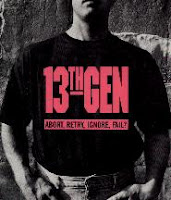

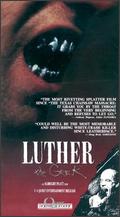


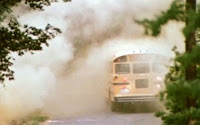



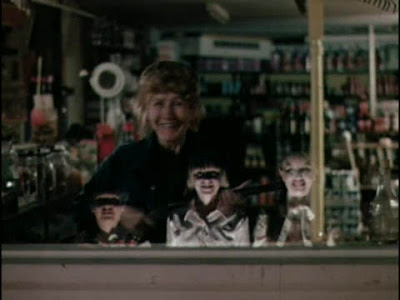


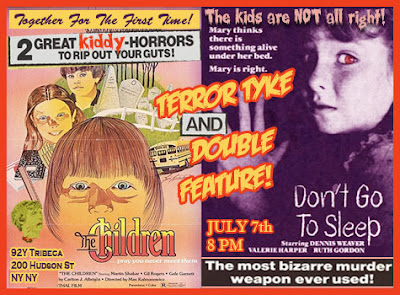
brainwane
That was a really interesting interview! Thanks for making it happen.
Joyce
This is absolutely terrific, you are a wonderful interviewer. Thank you so much for all the color added to a cool sleeper movie!
Akuma Fox
I loved reading this The children has been one of my favourites for decades. this interview has shed more light on a awesome horror movie. it's a shame Mr Alright didn't talk with you about a sequel or a remake. as now a days their is a market for it. you'd make 100's millions. can't you buy the rights and do it anyway.
Malkavian Whispers
Wow! I'm so jealous. Love this movie sooooo much. Glad you asked the questions that everyone wanted.
Totally fascinating fact about Ravensbruck Camp as well.
Thanks for this interview 🙂